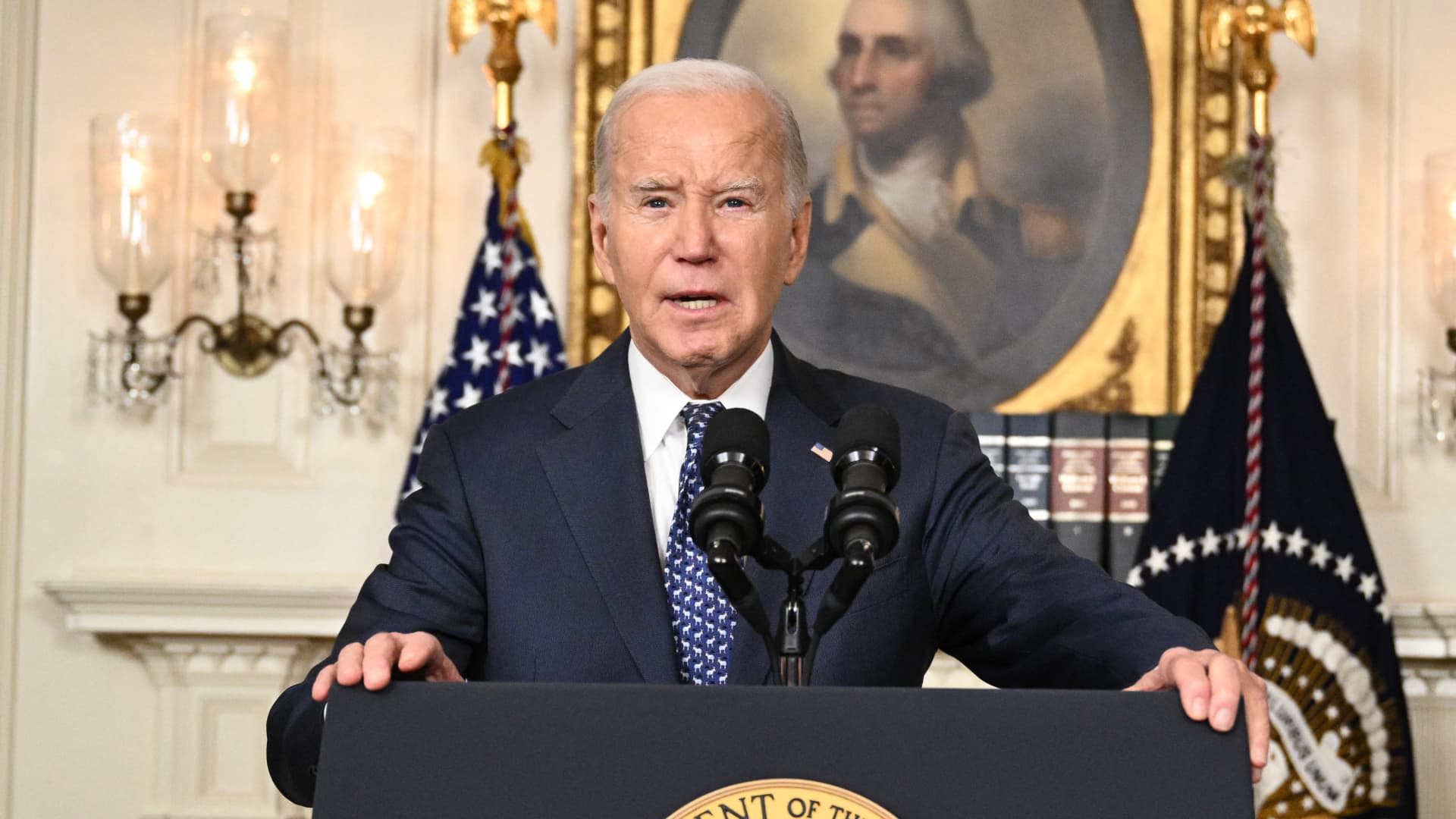President Joe Biden on Thursday evening strongly disputed new claims by Department of Justice special counsel Robert Hur that he “willfully retained and disclosed classified materials” as a private citizen, and that he had exhibited poor memory during an interview about that material.
“My memory has not gotten worse,” Biden told reporters in a nationally televised address at the White House hours after Hur released his report.
“My memory is fine.”
But moments later, Biden referred to Egypt’s president as the “president of Mexico.”
Biden was visibly angry at Hur’s claim that he could not remember the year his son Beau Biden died, which the special counsel cited among other examples of evidence that Biden’s memory “appeared hazy” during interviews with investigators.
The president said that when he was asked a question about that year Beau died “I thought to myself [it] wasn’t any of their damn business.”
“How in the hell dare he raise that,” Biden said of Hur. “I don’t need anyone to remind me when he passed away.”
The main legal takeaway from Hur’s report was the special counsel’s decision not to criminally charge Biden despite what Hur said was the president’s willful retention of classified documents and disclosure of of some classified material to the ghostwriter of his 2017 memoir.
Biden said, “I’ve seen the headlines since the report was released about my willful retention of documents.
“These assertions are not only misleading, they’re just plain wrong,” the president said.
US President Joe Biden speaks about the Special Counsel report in the Diplomatic Reception Room of the White House in Washington, DC, on February 8, 2024 in a surprise last-minute addition to his schedule for the day.
Mandel Ngan | Afp | Getty Images
Biden forcefully denied sharing the material with the writer.
And the president noted that Hur on page 215 of the same report wrote that “while it is natural to assume that Mr. Biden put the Afghanistan documents in the box on purpose and that he knew they were there, there is in fact a shortage of evidence on these points.”
“We do not know why, how, or by whom the documents were placed in the box,” the report had said.
On page 12 of the report, Biden noted, the special counsel wrote, “For other recovered classified documents, after a thorough investigation the decision to decline criminal charges was straightforward.”
Those classified documents were found in a Washington, D.C., office Biden had used after he ended his tenure as vice president in January 2017, and in collections of his U.S. Senate papers at the University of Delaware.
“The evidence suggests that Mr. Biden did not willfully retain these documents and that they could plausibly have been brought to these locations by mistake,” the report said.
Despite that language, Hur in his report used evidence of what he said was Biden’s “poor memory” to further justify his decision not to criminally charge the president.
“We have also considered that, at trial, Mr. Biden would likely present himself to a jury, as he did during our interview of him, as a sympathetic, well-meaning, elderly man with a poor memory,” the special counsel said in his report.
Hur’s repeated references to Biden’s memory sparked a bitter backlash from the White House and Biden’s supporters before the president made his televised address.
This is breaking news. Please check back for updates.

